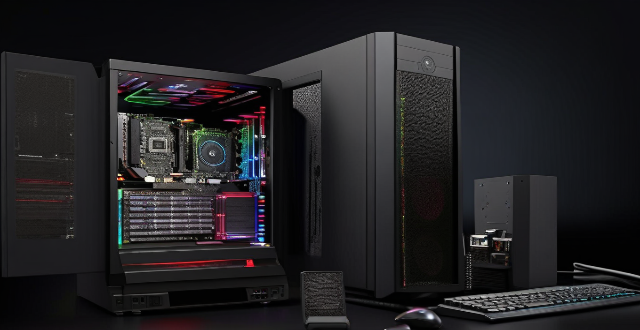A slow computer processor can significantly impact the overall performance of your system, affecting boot times, application performance, system responsiveness, gaming experience, multitasking capabilities, battery life (for laptops), compatibility with modern software and hardware, heat and power consumption, and upgrade options. Upgrading to a faster processor or purchasing a newer system with a more powerful CPU can help alleviate these issues and improve overall system performance.

Impact of a Slow Computer Processor on Performance
A slow computer processor can have a significant impact on the overall performance of your system. Here are some ways in which a slow processor can affect your computer's performance:
1. Slow Boot Times
- A slow processor can result in longer boot times, as it takes more time for the system to initialize and load necessary drivers and operating system files.
2. Reduced Application Performance
- Applications may take longer to launch and run, especially those that require a lot of processing power, such as video editing software or games.
- Multitasking may become difficult, as the processor struggles to handle multiple applications simultaneously.
3. Decreased System Responsiveness
- The computer may feel sluggish and unresponsive, with delays when switching between applications or opening new windows.
- Simple tasks like right-clicking on a file or folder may take longer to execute.
4. Poor Gaming Experience
- If you enjoy gaming, a slow processor can lead to low frame rates, long loading times, and stuttering gameplay.
- Some games may not even be playable on a system with a very slow processor.
5. Limited Multitasking Capabilities
- With a slow processor, running multiple programs at once can cause the system to become overwhelmed, leading to freezes or crashes.
- This can be particularly problematic for users who need to have several applications open at once for work or other tasks.
6. Reduced Battery Life (for Laptops)
- In laptops, a slow processor may cause the system to work harder to perform tasks, leading to increased energy consumption and reduced battery life.
7. Incompatibility with Modern Software and Hardware
- As technology advances, newer software and hardware may require faster processors to function properly. A slow processor may limit your ability to use the latest tools and technologies.
8. Increased Heat and Power Consumption
- Older, slower processors may generate more heat and consume more power than newer, faster ones, potentially shortening the lifespan of your computer and increasing your electricity bills.
9. Limited Upgrade Options
- If your computer has a slow processor, upgrading other components like RAM or storage may not provide a significant performance boost, as the processor remains the bottleneck.
In conclusion, a slow computer processor can have far-reaching effects on your system's performance, affecting everything from boot times and application performance to multitasking capabilities and compatibility with modern software and hardware. Upgrading to a faster processor or purchasing a newer system with a more powerful CPU can help alleviate these issues and improve overall system performance.